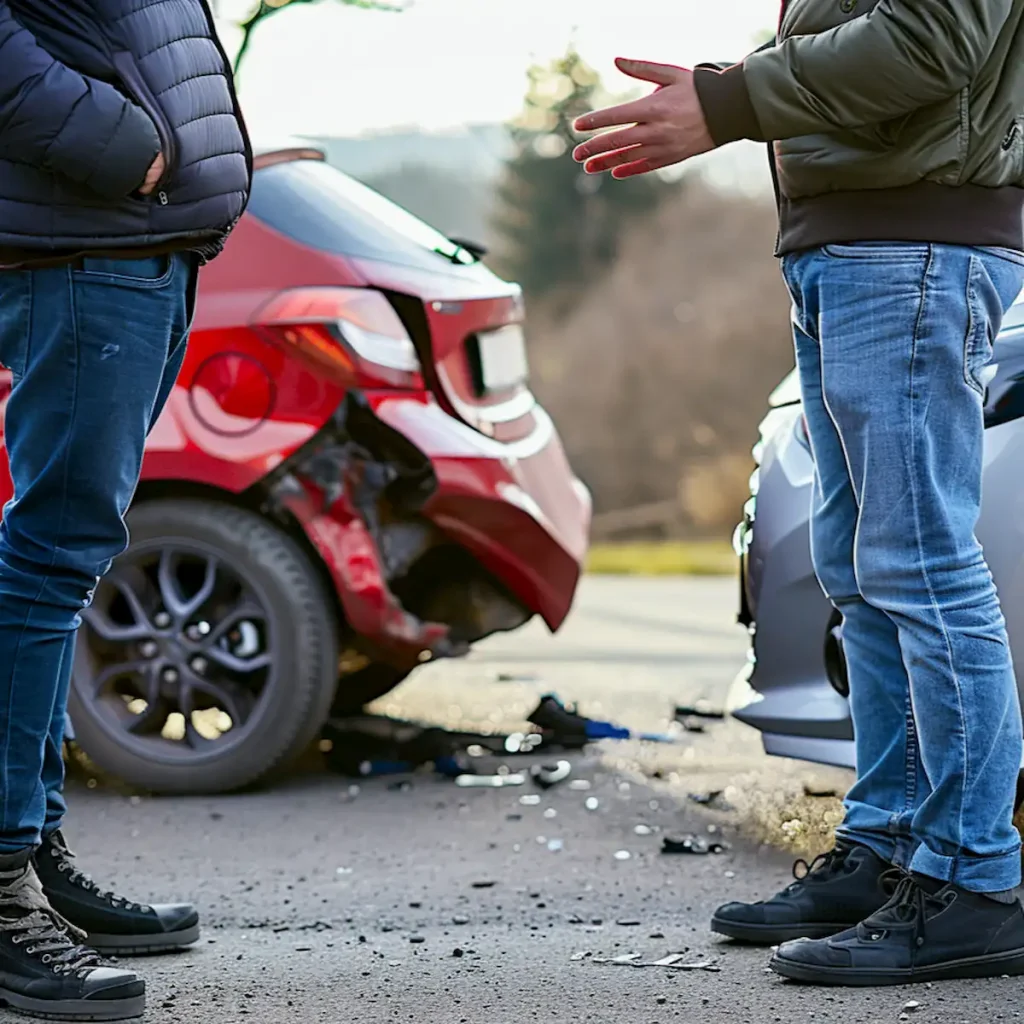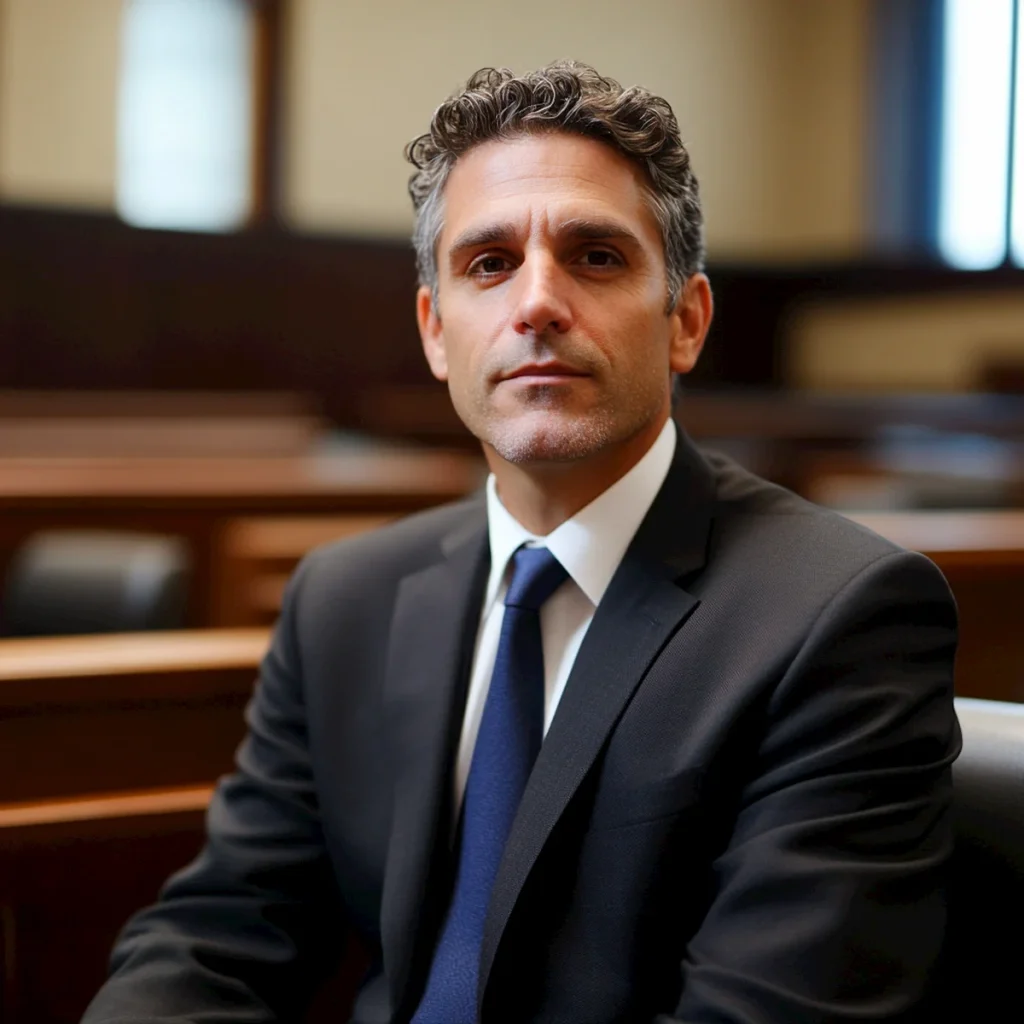Involved in a car accident that wasn’t your fault? Contact Schierer & Ritchie, LLC for a free consultation today, and let us fight for you!
Being involved in a car accident is a traumatic experience, especially when it wasn’t your fault. After the shock of the incident, it can be difficult to know exactly what steps to take to protect your legal rights and ensure you receive the compensation you deserve.
If you’ve been involved in a car accident and need legal assistance, contact Schierer & Ritchie, LLC today for a free consultation. Let us fight for the compensation you deserve.

At Schierer & Ritchie, LLC, we understand how overwhelming this situation can be. That’s why we’ve outlined a step-by-step guide on what you should do after a car accident that wasn’t your fault.
1. Ensure Safety and Seek Medical Attention
The first and most important step after any car accident is to ensure the safety of everyone involved. Immediately after the crash:
- Check yourself and others for injuries: If anyone is seriously injured, call 911 right away.
- Move to a safe location if possible: If your car is blocking traffic and it’s safe to do so, move it to the side of the road. However, if the vehicles are immovable or you’re in doubt, leave them where they are and wait for emergency services.
- Get medical attention: Even if you don’t feel injured, seeking medical attention is critical. Some injuries, such as whiplash or concussions, may not be immediately apparent. Delayed treatment can affect both your health and any future claim.
2. Call the Police
Even if the accident seems minor, always call the police. An official police report will be crucial when determining fault and seeking compensation. When the police arrive:
- Provide a factual account: Be honest and give the police a detailed account of the accident. Avoid guessing or assigning blame. Stick to the facts as you know them.
- Obtain a copy of the police report: Once the report is completed, get the report number and a copy for your records. This document will prove your case, as it objectively assesses the incident.
3. Exchange Information with the Other Driver
After ensuring everyone’s safety and contacting the police, exchange the following information with the other driver:
- Full name and contact information
- Insurance company and policy number
- Driver’s license number and license plate number
- Vehicle make, model, and color
While doing this, avoid discussing the details of the accident or admitting fault. Anything you say could be used against you later, even if it was meant to be polite.
4. Gather Evidence at the Scene
Documenting the accident scene can be critical to your case. The more evidence you gather, the better equipped you will be to prove that you were not at fault. Here’s what you should do:
- Take photographs: Use your phone to take clear photos of all vehicles involved, any visible damage, skid marks, traffic signs, weather conditions, and the overall scene.
- Talk to witnesses: If there are any witnesses, get their names and contact information. Their accounts could be valuable when proving what happened.
- Write down details: Write down everything you remember about the accident as soon as possible. Include the direction each car was traveling, the time, date, and weather conditions. Memory fades quickly, so having a written account can strengthen your case.
5. Notify Your Insurance Company
Even though the accident wasn’t your fault, you should still notify your insurance company. They will guide you through the claims process and might even negotiate with the other driver’s insurer on your behalf. When speaking with your insurance company:
- Be truthful: Give them the necessary facts, but again, avoid admitting fault.
- Ask about your coverage: Depending on your policy, your insurance might cover your medical bills or vehicle repairs upfront and seek reimbursement from the at-fault driver’s insurer.
If you need more clarification about dealing with insurance companies, Schierer & Ritchie, LLC, can assist you in navigating this complex process.
6. Consult a Personal Injury Attorney
It’s crucial to consult with an experienced personal injury attorney after an accident, especially when you’re not at fault. An attorney can help ensure you receive the compensation you deserve for medical bills, vehicle damage, lost wages, pain and suffering, and more:
Here’s why it’s essential to have legal representation:
- Protect your rights: Insurance companies may minimize your claim or pressure you into a low settlement. An attorney will advocate for your best interests and fight for the compensation you deserve.
- Navigate the legal process: Car accidents can lead to complex legal procedures, particularly if liability is disputed or significant injuries occur. An attorney will handle the paperwork, negotiations, and litigation if necessary.
- Maximize compensation: Schierer & Ritchie, LLC, has extensive car accident claims experience. We’ll ensure that all your economic and non-economic damages are accurately represented.
If you’ve been in an accident that wasn’t your fault, we offer a free consultation to evaluate your case and help you understand your legal options.

7. Document Your Injuries and Treatment
It’s important to keep detailed records of any injuries you sustain from the accident. This documentation can be crucial when seeking compensation:
- Keep a record of medical treatments: Save all medical records, bills, and prescriptions. This information will be needed to calculate the cost of your medical care.
- Track your recovery: Keep a journal of your recovery process. Note any pain, discomfort, or emotional distress you experience. This can help demonstrate the non-economic damages (such as pain and suffering) you’ve endured.
8. Do Not Accept a Quick Settlement
After an accident, the at-fault driver’s insurance company may offer a quick settlement. While this might seem tempting, especially if you have immediate medical or repair bills, it’s often in your best interest to decline.
- Settling too soon: Accepting a quick settlement could prevent you from pursuing further compensation if additional medical issues arise.
- Full evaluation of damages: Before agreeing to any settlement, consult an attorney to ensure all your damages, including future medical expenses and lost wages, are accounted for.
At Schierer & Ritchie, LLC, we’ll negotiate with the insurance company on your behalf and, if necessary, take your case to court to secure the compensation you deserve.
9. Know Your Rights in Illinois
If you are involved in a car accident in Illinois, it’s essential to understand your rights. Illinois follows a fault-based system, meaning the at-fault driver’s insurance covers the damages. In most cases, you are entitled to compensation for:
- Medical bills
- Lost wages
- Property damage
- Pain and suffering
However, determining fault isn’t always straightforward. Illinois follows a modified comparative negligence rule, which means you can still recover compensation even if you are partially at fault as long as you are less than 50% responsible for the accident. Your damages will be reduced by the percentage of fault assigned to you.
Contact us Today
Taking the right steps after a car accident that wasn’t your fault can protect your legal rights and ensure you receive fair compensation for your injuries and damages. These actions are crucial in building a strong case, from gathering evidence at the scene to working with an experienced attorney. At Schierer & Ritchie, LLC, we are committed to helping accident victims navigate this challenging time, providing the support and guidance needed for the best possible outcome.
If you’ve been involved in a car accident and need legal assistance, contact Schierer & Ritchie, LLC today for a free consultation. Let us fight for the compensation you deserve.

